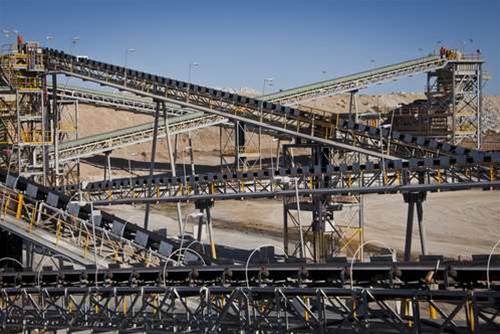Humans will continue to trump machines in recognising subtle environmental changes in mines, experts from Deloitte, NICTA and SAP have predicted.

Despite the growing uptake of automation systems among mining companies, the panel said technology would not replace front-line workers operating complex equipment at mine sites.
According to Deloitte Consulting technology lead partner Robert Hillard, automation could move some front-line workers to central remote operations centres (ROC), where they would apply their knowledge to interpreting various data streams from sensors attached to equipment in the field.
But big miners would likely hire more workers to fill any vacated front-line roles, Hillard said, asserting that front-line roles would not become redundant because of automation.
"One of the fears that people have is all the skills they've developed over many years in a traditional industry are going to be irrelevant in a new services-oriented industry," Hillard said. "Often the shift of skills is much less than people expect.
"You absolutely need people who are onsite and gleaning large amounts of knowledge about the equipment and getting a whole lot of subtle signals," Hillard said.
"It's really no different to the question of why business travel hasn't been entirely replaced by videoconferencing. There's a whole lot of subtle signals you get [from face-to-face contact].
"I don't think we are anywhere near a point where remote operations means that you don't have people spending time working with equipment."
Translating experiences into code
Describing humans as the “best pattern recognition computers that we have access to”, Hillard urged miners not to “get carried away and lose the role of the human” when scoping big automation and accompanying Big Data analytics projects.
When supply chain automation gained traction in the transport and logistics industries, some organisations made the mistake of neglecting to include workers' knowledge and experiences in their new systems, he noted.
As an example, he described one warehouse manager who knew from experience when to expect a heavier workload.
"There was another warehouse for a company that wasn't related to them but operated on a similar cycle across the highway and they could see how many trucks they had," Hillard said.
"[The warehouse manager] just knew by experience that when [the warehouse opposite] was busy he was about to get busy.
"That's not in the system anywhere and probably not relevant for any other warehouse in the network and yet it's very valid data, and the temptation is to ignore that type of thing when in fact it's very valuable."
The resources industry faces similar challenges.
NICTA chief executive officer Hugh Durrant-Whyte explained that physical sensor data needed "a geologist's understanding of how that basement rock has evolved over the last billion years, how it has collided and therefore potentially what gives rise to particular types of interpretations".
"An interesting thing is going to be to try to understand how that type of information is appropriately merged into the data analytics process," Durrant-Whyte said.
"You can envisage a whole range of other applications where similar issues are at stake".
Arresting skills departure
Resetting the model for knowledge capture at mine sites creates new opportunities for working.
SAP Australia's high performance analytics director Doug Gibson said the next generation of field workers would be armed with mobile devices.
"How do I start pushing the data to the people that need the data? The pit manager, how does he get the information he needs?" Gibson said.
"Working with applications and putting them on a handheld says, 'I've got the details in my hand, not at an aggregate level but the detail that I need associated to that piece of equipment right now as it's happening'."
"It's really closing a loop."
According to Hillard, automation and Big Data analytics systems could allow mining firms to retain domain experts who have spent years honing their skills in the field but no longer want to spend time at remote sites or as fly-in, fly-out workers.
"A lot of heavy industrial infrastructure projects are suffering from a big skills shortage," Hillard said.
"A lot of their skills are in an ageing workforce and are moving out of the full time workplace and are particularly un-keen to work in remote locations."
Hillard said an automated or semi-automated world could allow organisations to call on the expertise of semi-retired workers when needed.
"You can have an expert engineer in semi-retirement working half a day a week when needed using an iPad to view certain subsets of information and giving advice to younger engineers who are onsite," he suggested.
"Computers can help you digest the problem down to something that somebody who's got 30 to 40 years experience can provide advice on."


_(23).jpg&h=140&w=231&c=1&s=0)

.png&h=140&w=231&c=1&s=0)






 iTnews Benchmark Awards 2026
iTnews Benchmark Awards 2026
 iTnews Executive Retreat - Security Leaders Edition
iTnews Executive Retreat - Security Leaders Edition
 iTnews Cloud Covered Breakfast Summit
iTnews Cloud Covered Breakfast Summit
 The 2026 iAwards
The 2026 iAwards












_(1).jpg&h=140&w=231&c=1&s=0)



